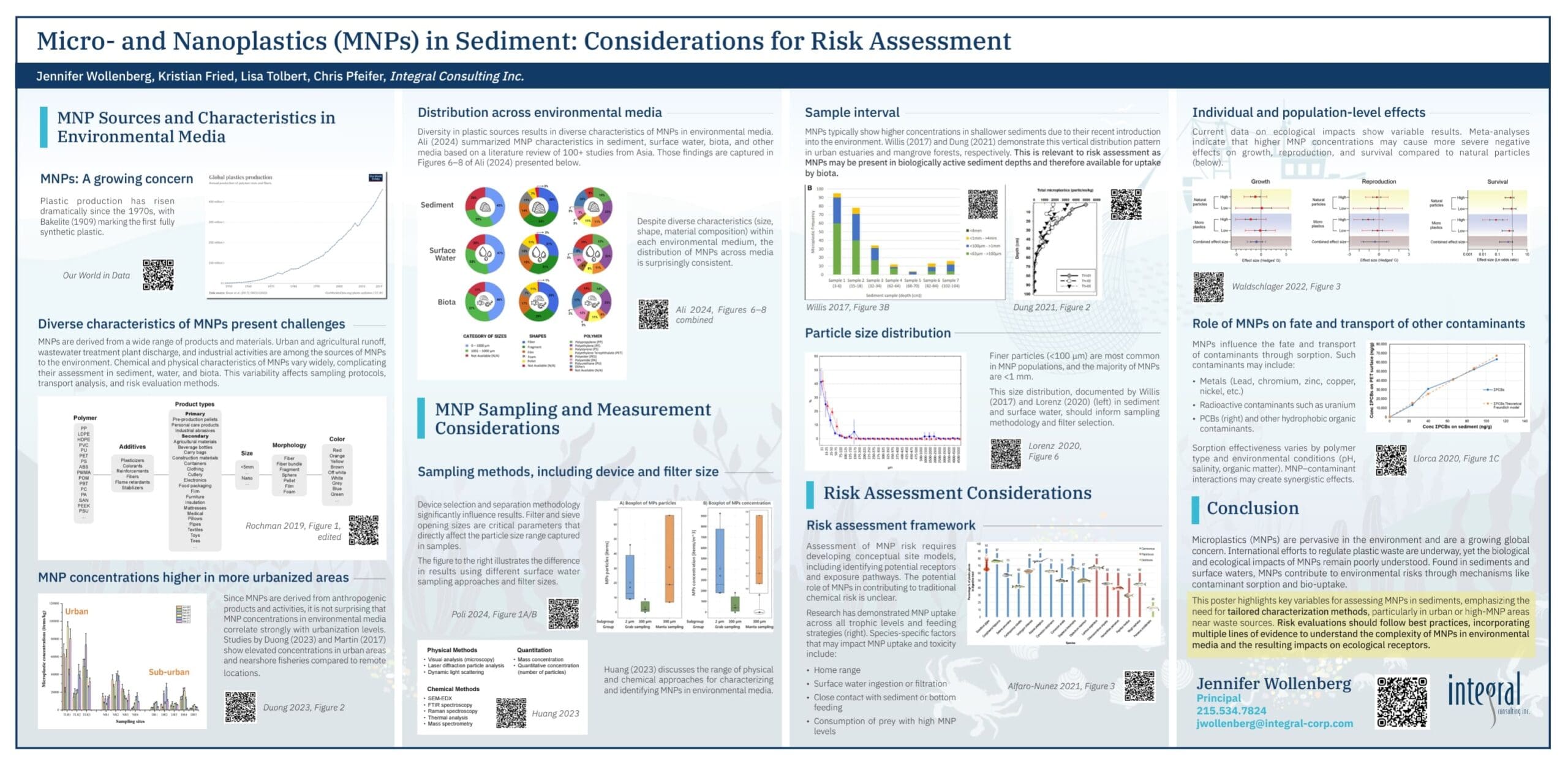
M.S., Environmental Science and Engineering, University of North Carolina, Chapel Hill, North Carolina, 1994
B.A., Physical Geography/Biology, University of Delaware, Newark, Delaware, 1991
Hazardous Waste Operations and Emergency Response 40‑Hour Certification (1995; 8‑Hour Annual Refreshers 1996–2023)
First Aid and CPR Certified (2023)
Delaware Living Shorelines Committee
Phi Beta Kappa
Chris Pfeifer Senior Consultant (302) 598-1988 Moorestown, NJ cpfeifer@integral-corp.com
Mr. Chris Pfeifer is a multidisciplinary environmental scientist with nearly 30 years of consulting experience focused on wetland science, natural resource damage assessment (NRDA), ecological restoration, oil spill environmental response, and ecological risk assessment. He also has broad experience in project, program, and client management. He has responded to more than 50 pipeline, vessel, and facility pollution incidents and worked on dozens of NRDA cases throughout the country under both the Oil Pollution Act and CERCLA. He has applied ecological risk concepts to evaluate natural resource injuries and used habitat equivalency analysis (HEA) and resource equivalency analysis (REA) to quantify changes in ecological services and scale compensatory restoration. Mr. Pfeifer has also conducted screening-level ecological risk assessments (SLERAs) for a variety of contaminated sites and spill locations addressing hazards from hydrocarbons, PCBs, metals, dioxins, and pesticides. He applies his experience restoring, creating, and enhancing wetland, aquatic, riparian, and upland habitats working in regulatory settings to mitigate impacts from land development and restore natural resources injured by pollution. He also engages in non-regulatory projects such as living shorelines to address coastal erosion and bolster resilience. Prior to his work in consulting, Mr. Pfeifer supported aquatic resource and water quality protection and planning programs in state and federal government.

U.S. Department of the Interior Proposes Revisions to NRDA Regulation Type A Rule
Resource
January 10 2024- Ecological Risk Assessment
- Coastal Resilience
- Ecological Restoration
- Natural Resource Damage Assessment
Ecological Risk Assessment
Coastal Resilience
Ecological Restoration
Natural Resource Damage Assessment
American Petroleum Institute. 2022. Evaluation and comparison of habitat and resource equivalency analysis as used to conduct OPA NRDA. American Petroleum Institute Publishing Services, Washington, DC. 210 pp. (co-author)
Wakefield, J., T. Tomasi, A. Morrow, C. Pfeifer, and H. Byrd. 2021. Habitat and resource equivalency analysis: 30 Years of lessons learned and a look to the future. Proceedings of 2021 International Oil Spill Conference, Virtual. American Petroleum Institute, Washington, DC.
Delaware Living Shorelines Committee. 2020. Site evaluation for living shoreline projects in Delaware. A report prepared by the Delaware Living Shorelines Committee Design and Engineering Subcommittee. 51 pp. (co-editor)
Morrow, A., C. Pfeifer, V. Broje and R. Grunberg. 2017. Why sample? – Understanding common sampling objectives for oil spill response. Proceedings of 2017 International Oil Spill Conference, Long Beach, CA. American Petroleum Institute, Washington, DC.
Pfeifer, C., R. Redman, E. Brzozowski, and R. Markarian. 2008. Quantifying the spatial characteristics of submerged oil using underwater video imagery. Proceedings of 2008 International Oil Spill Conference, Savannah, GA. American Petroleum Institute, Washington, DC.
Pfeifer, C., R. Redman, E. Brzozowski, and R. Markarian. 2008. Long-term monitoring of submerged oil in the Gulf of Mexico following the T/B DBL 152 Incident. Proceedings of 2008 International Oil Spill Conference, Savannah, GA. American Petroleum Institute, Washington, DC.
Pfeifer, C.E., and C.A. Hess. 2005. Integrating primary and compensatory restoration for an oil spill through use of habitat enhancement. Proceedings of the 2005 International Oil Spill Conference, Miami Beach, Florida. American Petroleum Institute, Washington, DC.
Michel, J., D. Simecek-Beatty, E. Levine, S. Lehmann, W. Lehr, G. Ott, V.L. Trumbull, C. Pfeifer, M. Ploen, and J. Elliot. 2005. Submerged oil assessment and recovery at the Athos I oil spill. Proceedings of the 2005 International Oil Spill Conference, Miami Beach, FL. American Petroleum Institute, Washington, DC.
Pfeifer, C.E., and B. Peacock. 1998. Colonial Pipeline oil spill, Reston, Virginia, Draft Restoration Plan and Environmental Assessment. U.S. Department of the Interior, Virginia Department of Environmental Quality, and District of Columbia Department of Health. October 1. 43 pp.
Pfeifer, C.E., and E.J. Kaiser. 1995. An evaluation of wetlands permitting and mitigation practices in North Carolina. Technical Report No. 294, The University of North Carolina Water Resources Research Institute, Raleigh, NC. 81 pp.
Redman, R., C. Pfeifer, E. Brzozowski, and R. Markarian. 2008. A comparison of methods for locating, tracking and quantifying submerged oil used during the T/B DBL 152 incident. Proceedings of 2008 International Oil Spill Conference, Savannah, GA. American Petroleum Institute, Washington, DC.

